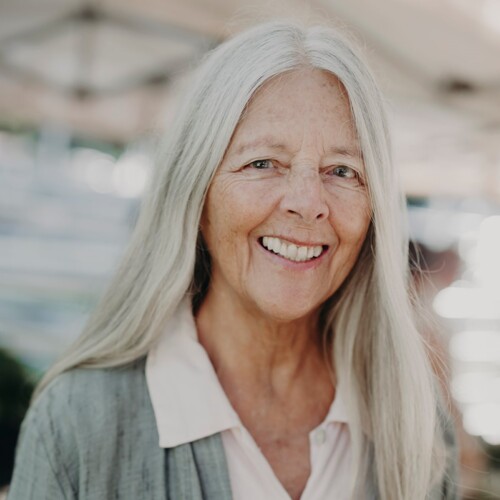
Helena Norberg-Hodge (SWE)
author and filmmaker
„Localization is the way to repair our fractured world, our ecosystems and ourselves.“
Helena is a linguist, author, filmmaker and pioneer of the new economy movement. She is the founding director of Local Futures, an international non-profit organization dedicated to renewing ecological, social and spiritual wellbeing by strengthening communities and local economies worldwide.
Born into an international family, and educated in Sweden, Germany, Austria, England and the United States, she specialized in linguistics, including studies with Noam Chomsky at MIT. In 1975, she was invited to accompany a film team to the remote North Indian region of Ladakh. Helena became the first Westerner in modern times to master the Ladakhi language, and gained deep insights into the workings of one of the few cultures that remained untouched by the modern world. In 1978, she founded the Ladakh Project, which countered the romanticised images of the Western consumer culture while strengthening traditional organic agriculture and introducing renewable energy as an alternative to fossil fuel-based development. This work garnered international respect. Ever since, Helena has been invited to speak at major institutions and universities around the world, including Harvard, Oxford and the World Bank, and has had meetings with prominent policy-makers from the White House to the European Commission. She also co-founded the International Forum on Globalization and the Global Ecovillage Network (GEN).
Helena is the author of several books, including the international best-seller Ancient Futures, and the producer of the award-winning film The Economics of Happiness and Planet Local. She is a recipient of the Alternative Nobel prize, the Arthur Morgan Award and the Goi Peace Prize for contributing to “the revitalization of cultural and biological diversity, and the strengthening of local communities and economies worldwide.”
Rethinking Globalization
20. 7. 2023 17:00 - 18:00
The link between our global economy and climate change, human rights violations and political corruption are becoming increasingly evident. In addition, the fragility of complex global supply chains has been laid bare during COVID. We now have a choice.
We can continue on the business-as-usual path of globalization, ignoring the destruction of our ecosystems, communities, and health as we race to Mars to fight over scarce minerals. Or, can narrow econometric thinking be replaced by a mindset that serves our common future? How can ecological, social and spiritual values be reconciled in terms of a fair and sustainable development?